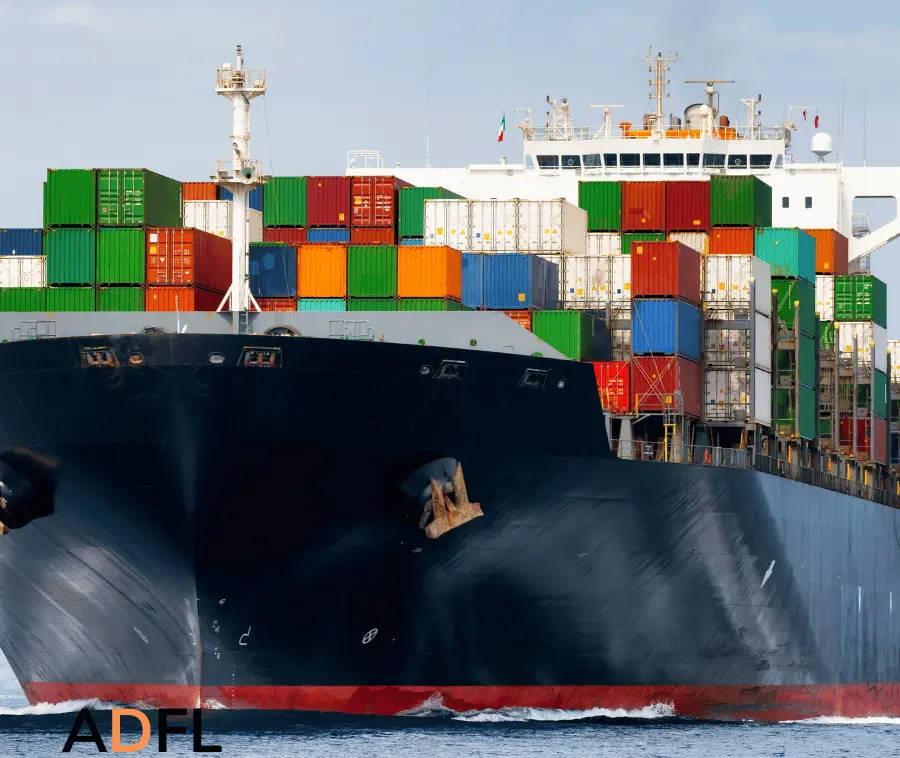
Understanding Marine Law in Kuwait

Marine law, also known as admiralty law, governs the legal framework surrounding seafaring vessels and maritime activities in Kuwait. In this comprehensive guide, we delve into the intricacies of marine law, covering topics ranging from ship registration to maritime contracts, marine insurance, and marine pollution regulations.
Marine law, commonly referred to as admiralty law, rules the legal ramifications associated with seafaring vessels and maritime dealings. It delves into a range of topics, from the registration of ships to the establishment of maritime contracts, the provision of marine insurance, and the regulation of marine pollution.
The registration of ships is a pivotal aspect of marine law in Kuwait. The procedure necessitates the ship’s formal recognition by the Kuwaiti government, a prerequisite for it to legally navigate within Kuwaiti waters. This process encompasses the submission of vital documents, such as the ship’s certificate of ownership, and the payment of mandatory fees.
Maritime contracts, another crucial aspect of marine law, dictate the relationships between ship owners, charterers, and cargo owners. These contracts detail the terms of carriage, freight, and the duties and obligations of each party.
Marine insurance plays a significant role in marine law in Kuwait, safeguarding ships and cargo against loss or damage. It is mandatory for ship owners and cargo owners to secure this type of insurance.
Marine pollution also constitutes a crucial aspect of marine law in Kuwait, with the government implementing laws and regulations to combat and penalize those responsible for such pollution.
Therefore, it is advisable for those involved in maritime activities to seek counsel from lawyer well-versed in marine law to guarantee compliance with the laws and regulations in place. This will ensure a smooth navigation through the complex legal procedures related to ship registration, maritime contracts, marine insurance, and the prevention of marine pollution.
In a nutshell, marine law in Kuwait governs the legal aspects of ships and maritime activities, offering guidance on ship registration, maritime contracts, marine insurance, and marine pollution. It is crucial for all parties involved to seek expert legal advice to abide by the laws and regulations governing the maritime industry in Kuwait.
Ship Registration in Kuwait
Ship registration is a critical process mandated by Kuwaiti law for vessels to operate legally within Kuwaiti waters. The registration procedure entails formal recognition of the ship by the Kuwaiti government. Essential documents, including the ship’s certificate of ownership, must be submitted, accompanied by the payment of requisite fees.
Understanding Maritime Contracts
Maritime contracts serve as the cornerstone of relationships between ship owners, charterers, and cargo owners in Kuwait. These contracts delineate terms related to carriage, freight, and the respective rights and obligations of each party involved. Clarity and precision in drafting such contracts are paramount to avoid disputes and ensure smooth operations within the maritime industry.
Importance of Marine Insurance
Marine insurance plays a pivotal role in mitigating risks associated with maritime operations in Kuwait. Ship owners and cargo owners are obligated to obtain marine insurance to safeguard against potential losses or damages during transit. Compliance with insurance requirements is indispensable for protecting both maritime assets and financial interests.
Combatting Marine Pollution
The prevention and mitigation of marine pollution represent a fundamental aspect of Kuwait’s marine law framework. Stringent regulations and enforcement measures are in place to address incidents of pollution and hold accountable those responsible. Proactive measures, including pollution prevention plans and emergency response protocols, are integral to safeguarding marine ecosystems and preserving Kuwait’s coastal environment.
Navigating Legal Complexities
Given the multifaceted nature of marine law in Kuwait, seeking legal counsel from knowledgeable professionals is highly recommended for all stakeholders involved in maritime activities. Expert guidance ensures compliance with existing laws and regulations, thereby minimizing legal risks and facilitating adherence to industry standards.
Conclusion
In conclusion, marine law in Kuwait encompasses a comprehensive set of regulations governing various aspects of maritime operations. From ship registration to maritime contracts, marine insurance, and pollution prevention, adherence to legal requirements is imperative for ensuring safe and sustainable maritime activities. By understanding and abiding by Kuwait’s marine laws, stakeholders can navigate the complexities of the maritime industry while promoting environmental stewardship and regulatory compliance.


